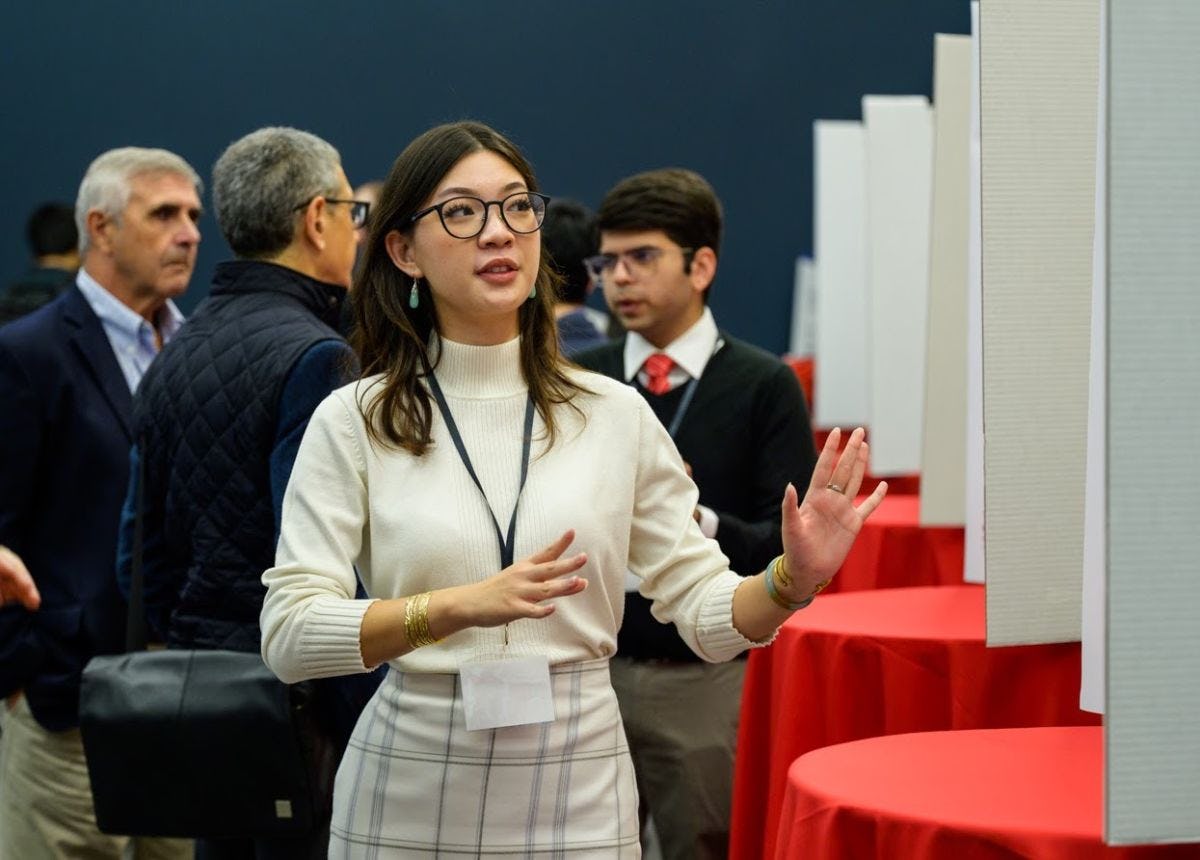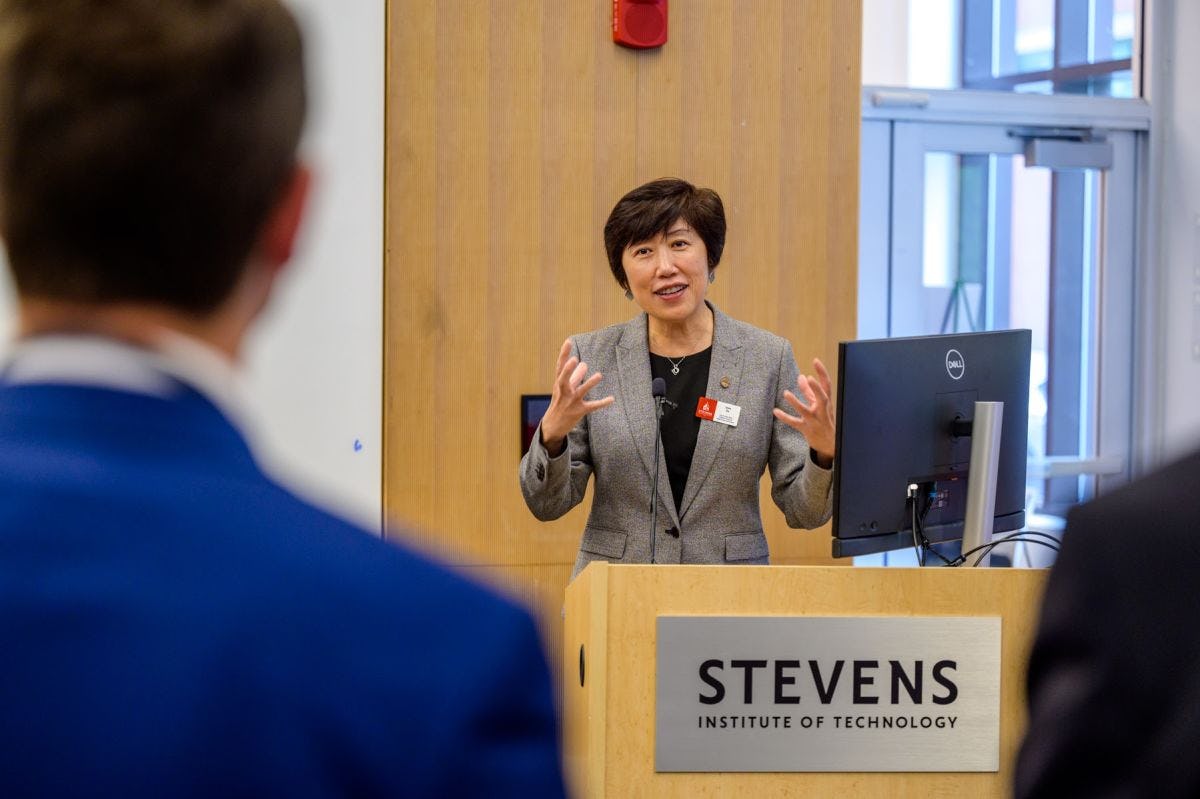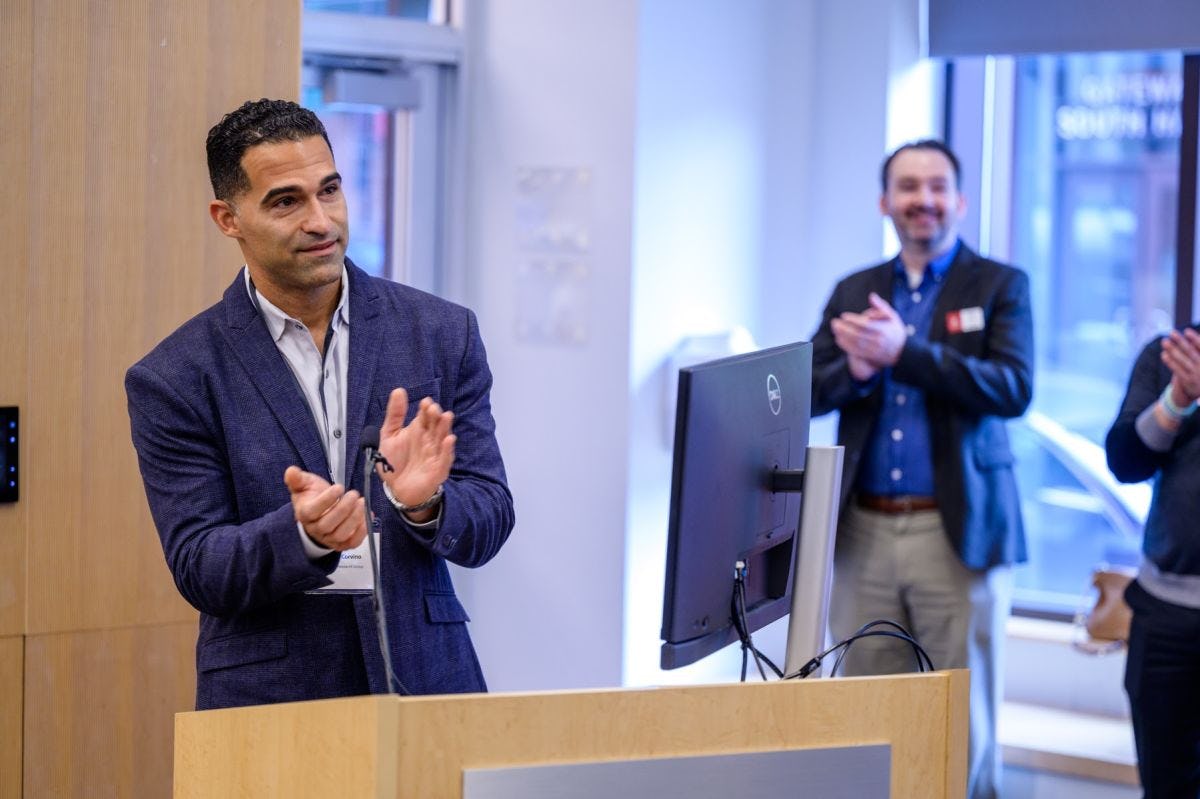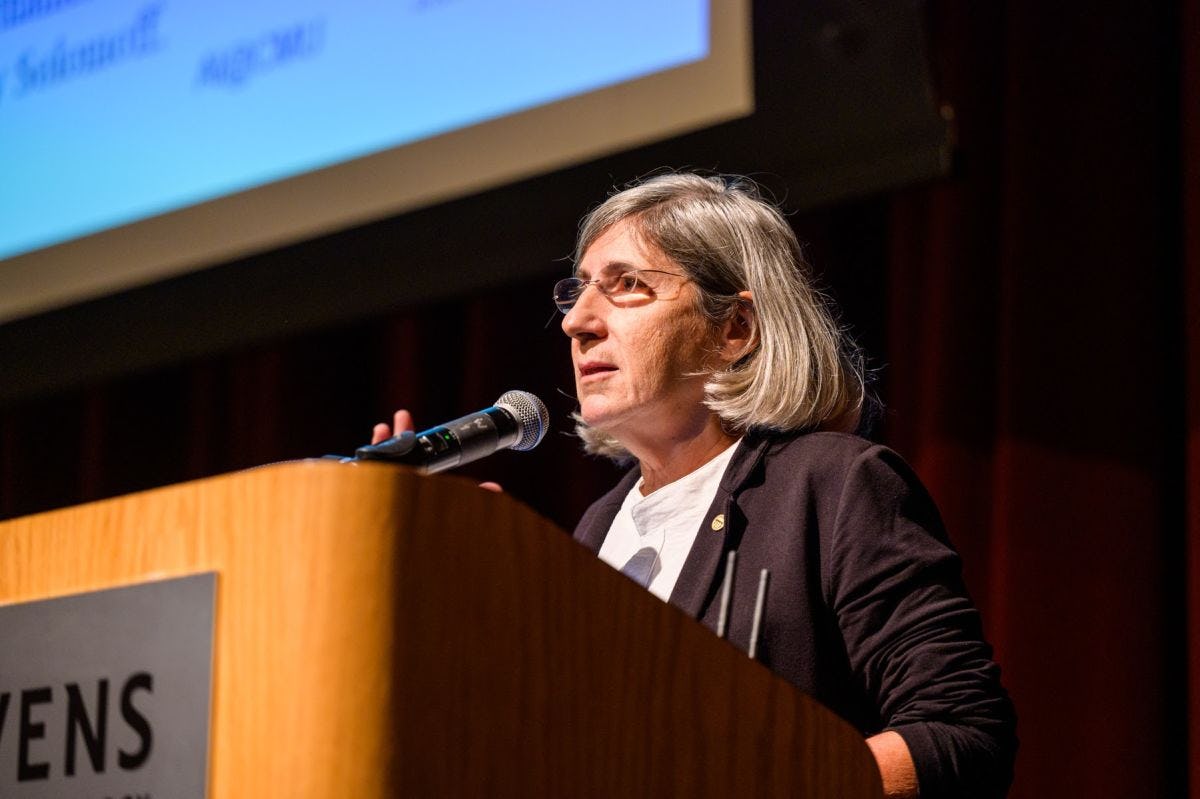SIAI 'Relaunch' Event Showcases Student, Faculty AI Research, Unveils New Mission
Welcome remarks, student research, faculty demos and lecture from industry featured as SIAI broadens its charge to create AI for societal good
AI is transforming society, and Stevens is taking a role in using it to shape that future by creating societally beneficial applications — chiefly through the university’s AI research center, the Stevens Institute for Artificial Intelligence (SIAI).
SIAI unveiled its new offices, new research and a new mission in a campus event October 18 gathering faculty, leadership, government officials, alumni and members of the Board of Trustees while also featuring plenty of student ingenuity plus a lecture from a financial-industry AI research director.
“I was not using [AI] in any of my research when I arrived here in 2014,” said SIAI Director Brendan Englot, introducing the event in the Corcoran Room of the Gateway North building and commenting on the speed with which the field has evolved. “Now it's touching almost all the research that we do in my robotics lab.”
AI for societal good; broader collaborations
Prior to remarks, eleven students presented research posters and discussed projects and findings from this past summer’s AIRS (AI Research in Summer) Fellowship Program session with applications to critical areas like cardiac imaging, epilepsy diagnose, physical therapy and substance abuse.
Those students were selected for the 11 faculty-proposed AI projects from more than 270 applicants.
“Basically, I simplified an algorithm created by Zhuo Chen Ph.D. '21 and his team that approximates the base of [walking] support and determines the margin of support in real time,” said undergraduate Bao-Chau Nguyen, whose AIRS project was aimed at helping create new ways to inspire adults to rehabilitate, such as through interactions with robots that can demonstrate optimal walking gaits.
Five faculty members also presented research in the hall through posters and demonstrations, including virtual-reality goggles (part of a computer vision project headed by Professor Enrique Dunn) and a mobile-manipulation robot that uses AI to navigate demonstrated by Erik Pearson Ph.D. ‘23, a research assistant in Englot’s robotics lab.
Vice President for Research and Innovation Ed Synakowski began the event’s remarks, commenting that the shift now taking place with the advent of AI was revolutionary — possibly analogous to the changes in perception created when the astronomer Nicolaus Copernicus shifted human understanding of the physical universe to a solar-centric model.
SIAI, Synakowski continued, has become a truly interdisciplinary and cross-university entity, perfectly positioned to leverage various strengths and make a larger impact.
“That's one of the really important and exciting things about this,” he said. “This center draws people from every corner of the campus. The challenges facing society are increasingly demanding attention from several disciplines at once.”
“Here, through the center, you have a forum where you're going to be learning from people, from other disciplines, and you're going to be sharing ideas as to how to use what you've learned in your discipline to help out somebody in a completely different domain.”
SIAI history; focus on ethics; a new space
SES Dean Jean Zu continued the remarks, taking the assembled audience through her own experiences with AI — she was brought to the university, she recounted, owing in part to her expertise directing AI work at the University of Toronto.
Zu swiftly created SIAI within a year of joining Stevens in 2017. She summarized the history of SIAI and its three directors since, lauding the work of founding director K.P. “Suba” Subbalakshmi in establishing the institute; the contributions of former director Jason Corso, who expanded its scope; and current director Englot — who initially headed a SIAI directorship search committee, then assumed the interim directorship for approximately nine months and finally agreed to become permanent director in January 2023.
“In just 10 months, Brendan has really transformed the institute,” Zu noted, “and led to where we are today, with 100-plus members on campus.”
Stevens alumnus Frank Corvino Ph.D. ‘09 — CEO of Hoboken-based Genesis Research Group, which uses AI and other technical tools to derive useful business insights for the healthcare industry — spoke next, admiring the student talent assembled in the hall and explaining how the technological world has rapidly changed since he obtained his doctorate in theoretical physics 14 years ago.
“Stevens has been transformed from a regional college that everybody knows for engineering to a world-class institution that drives innovation, that's known globally,” he began. “Things are moving fast. Most of you are going to conduct research that is going to impact us tomorrow and in the very near future.”
Corvino also addressed the humanistic aspects of AI, areas where he feels Stevens and SIAI will make a significant impact.
“Education doesn't end with educating students on the technical aspects of AI,” he pointed out. “We have to be thought leaders with respect to how this technology affects humanity and the ethical considerations that are involved with those advancements."
"Because whenever there are rapid advancements, there is uncertainty, and we must use transparency, truth and scientific facts to eradicate fear, disinformation and anything that limits or inhibits scientific innovation or progress.”
“I'm so excited to watch all of you face and overcome these challenges, to attack these opportunities with good intention,” finished Corvino, and to see all of your success unfold as Steven shapes the future of artificial intelligence.”
Englot concluded the remarks portion of the event by again thanking Subbalakshmi and Corso for their prior leadership of SIAI — and vowing to continue expanding collaborations and partnerships.
SIAI then formally opened its new headquarters, which occupies the entire top floor of the Gateway North building, to the public. The institute’s space features a reception area, a leadership space, faculty offices and some computing facilities.
The event concluded with the Schaefer School Dean’s Lecture, “Artificial Intelligence in Finance: Examples and Discussion,” by Manuela Veloso, head of AI research for JPMorgan Chase in DeBaun Auditorium.





